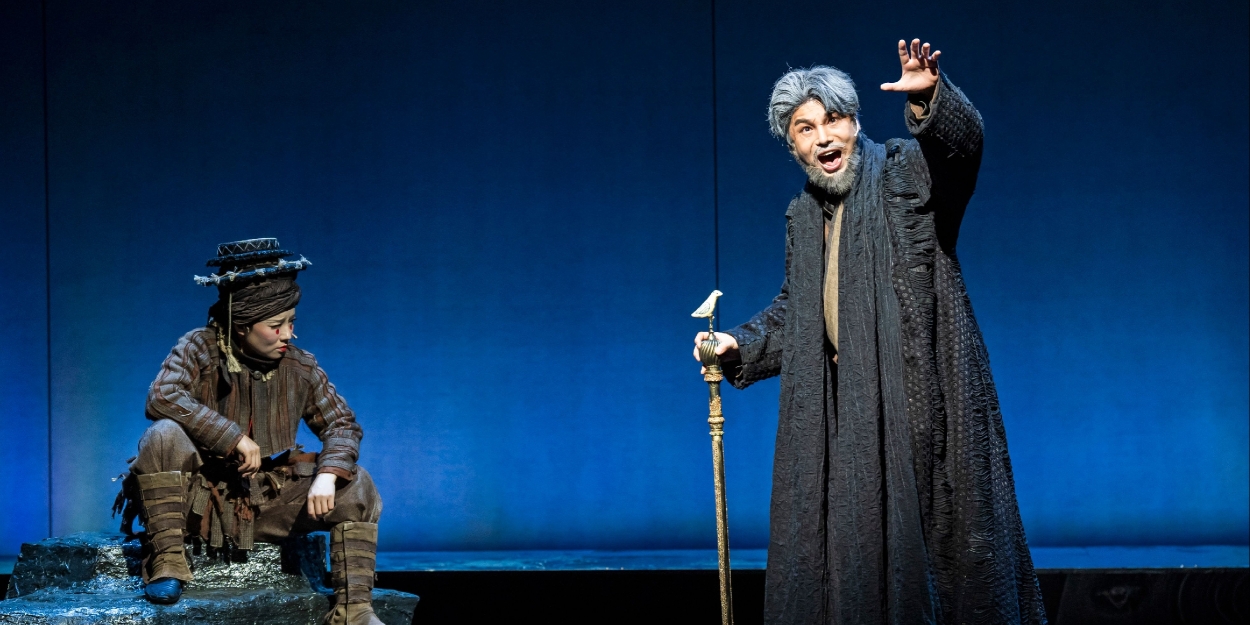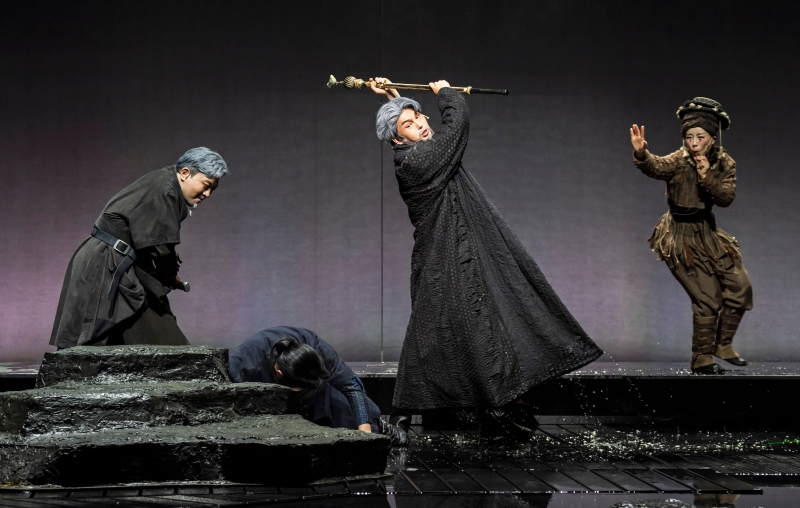Review: LEAR, Barbican
Changgeuk Company of Korea's adaption plays until 6 October

![]()
It’s not the first time the mad king has made his way to Asia: Kurosawa’s film version Ran finds Lear wandering storm swept Feudal Japan. Here playwright Pai Sam-shik and National Changgeuk Company of Korea have remoulded Lear into a traditional Korean opera. And how awe inspiring it is to see him stripped to his bare bones and recloaked in the guise of a new culture. The fundamental beats of his strained humanity bleed across geography.
There’s something deeper going on here. It’s not just a testament to how universally applicable the dynamics coiled in the heart of the play are, but a chance to step outside the confines of British theatre and experience a new way of approaching performance.
From the get-go buckets of emotion are hurled at you almost aggressively. Goodbye Stanislavskian subtlety, every gesture is maxed out to a melodramatic limit, every beat heightened to an intoxicating swirl of movement through Lee Tae-sup’s obsidian grey elemental set. Pulsating percussion and wailing strings electrify the action, though I suspect the reliance on western instruments sanitises aspects of the traditional Pansori storytelling.

Not allowing itself breathing room would seem to be a fatal flaw. The drama has no direction to progress. It remains monotonically maximal, which after about an hour, becomes testing. Without narrative fluctuation it’s hard to keep us hooked. Kim Jun-su’s Lear is only ever an insolent child, not so much descending into madness but stepping sideways into it.
But to criticise it as such is to miss the point of the dramatic form. At the risk of sounding pretentious, there’s a deeply Brechtian quality – it’s worth noting that Eastern theatre was the aesthetic foundation stone for Brecht’s Verfremdungseffekt philosophy. In other words, the performance is self-consciously extravagant. That’s the point. We, here in Britian, are so acclimatised to actors mining dramatic depths of their characters’ inner psychology that we can’t seem to compute anything else.
Watching this Lear becomes less of an exercise in emotional imagination, and more analytical: I’m not rooting for anyone, just watching Lear and co. rip each other apart from afar. The ideas rumbling at the core more freely emerge as an international language: parents and children, inheritance, and the duty we owe our families. It’s difficult without dramatic calibration, but this Lear is an endlessly fascinating experience. A must for bard completionists.
Lear plays at the Barbican until 6 October
Photo Credits: Tristam Kenton
Reader Reviews

Videos
